- Home
- Alfred Bester
Redemolished Page 2
Redemolished Read online
Page 2
They would rush from all sides, he thought, and in the night he might get one or two at the most. Then the rest would pick up Helga. She'd be bound and gagged, and in a month she'd be back in Holland. She wouldn't be Hilda any more. She'd be Hilda Pietjen, daughter of the prime minister, just another chip in the Nazi poker game. And he'd be dead in the bunker, a thousand years before he'd been born.
A spike of red flame flared and cracked. Conn fired at the flash. It had been a signal. Feet thumped on the turf. Conn thought: What have I got to lose? He got to his knees and scrambled to the lip of the trap, exposing himself. He fired the last shots carefully at the looming shapes, and as the echoes boomed, he rolled down into the pit, fingers groping for the last clip. It seemed to him that floodlights were sparking around him.
A black figure hurtled over the bunker and came down at him. Conn dropped the clip and smashed his empty gun in the man's face. At that moment a second caught him on the flank and bore him down. Grit seared Conn's cheek. He rolled with flailing arms and drove an elbow into the man's neck.
He tried to get to his feet in the shifting sand. The man kicked him heavily in the belly. Conn fell forward, fists pumping toward the jaw. Cartilage squished and the man groaned and slumped. Then Conn's right drove against the jaw. Everything was still.
"No more?" Conn croaked. Hilda helped him up, her eyes distended with fright. Conn repeated: "No more? There ought to be. I couldn't have killed five men with two shots." He examined the surrounding fairway closely. In the glow of the rising moon he saw nothing. The turf looked torn.
"No more," Hilda said. "Oh, darling, I—"
Conn took her in his arms and kissed her. This, he thought, should be the last paragraph. Nothing else comes after this but "They lived happily ever after." and then "The End." He nestled his bruised cheek against her silky hair and tried to memorize its scent. At last he pushed Hilda gently away.
"I've got to go now," Conn said. "It's nearing night. This is goodby, Hilda, for a long time. Maybe forever—"
Even in the darkness he could sense the way Hilda stiffened. She stepped back a little, her hand raised to her lips.
"Oh," she said.
Conn said: "It's not what you think, darling. I love you, but—" Too overwrought to continue, he hunted shakily for his revolver and clip, found them at last and tried to brush out the sand.
"I think we'd better go back to the car," Hilda said.
"No, I'll walk the rest of the way," said Conn. "It's not far to where I'm going—in a sense." He shouldered the heavy rucksack, paused for an instant. Suddenly he grasped Hilda's arms and shook her a little. "You've got to understand," he said. "This is something I must do. I'm not a free agent—I've got a tremendous responsibility."
"Don't talk," Hilda said. "Excuses don't make it any easier to understand."
"You're not making it any easier," Conn said.
Hilda broke away from him and tried to struggle up the side of the sandpit. Conn helped her up. They stood on the open fairway, feeling the night breeze cool their faces.
"Listen to me a moment," Conn said. He pulled out the keys of his roadster and handed them to her. "This is for the car. It's yours now. I won't be needing it, ever again. Hilda, this isn't the way I wanted to say good-by. I thought we'd drive to the place and I'd explain there. The apparatus would have made understanding easier for you. Maybe this way is better after all. We'll part here. You'll drive back to the city, hating me. Pretty soon you'll forget—"
She took the keys in silence, eyeing him contemptuously. Suddenly Hilda slapped his face. The blow stung. Conn grinned wryly.
"All right," he said. "Good-bye—"
He started toward the hill where the machine was cased. After a dozen steps he turned his head and dimly saw Hilda standing there in the night. After a dozen more he heard her cry: "David!" And then again in an altered, almost joyous tone: "David!" He thought that a wind brushed past him, like the ghost of himself returning to Hilda.
He wanted to go back to her more than anything else. He thought: To hell with Dunbar and my responsibility to him. To hell with the machine—let it rot forever. To hell with everything but Hilda—But it was twenty minutes to eight and the discipline was bred strong in him. He pushed into the high weeds at the foot of the hill and began to mount the slope.
Every step pushed this pleasant land farther into the past. His own day loomed before him—the day a thousand years to come. The same earth, but a place of towering cities, of giant laboratories; of vast engines that reshaped the land and thundering rocketships that pierced the skies.
Conn thought of the ordered existence to which he was returning and sighed. It was tailored. Life was too smooth and easy. There was too little work, no excitement; too little adventure, no danger. In this crude earth of the past which he was leaving he had found all the breathlessness for which he'd yearned. He'd found and left a girl crying out for him, a girl whose cries had died away a thousand years ago.
Conn reached the crest of the hill. The core was of solid granite, as old as eternity; Dunbar had made sure of that. Conn probed carefully in the turf until he found the soft spot. He dug energetically until he uncovered the bank of studs. He pressed them in combination and stood up.
Slowly a yard-wide circle of turf slipped downward, carrying him with it. Fifty feet it lowered until a narrow steel door set flush in the side of the shaft slipped up before Conn. He thrust it open, stepped inside and pressed a button placed high on the jamb. The circle of turf ascended again.
Conn shut the door behind him and switched on the lights. The apparatus glittered before him, a maze of solenoids and selenium generators, as gleaming and new as though Dunbar had assembled it half an hour before. He glanced at his wristwatch. Five minutes to eight. Dunbar had given him strict instructions to return within a year at the utmost. Power had drained off from the banks of accumulators through sheer inactivity. This way there was just enough left. Another day's delay might make return impossible.
Hastily Conn inspected the written records and samples he had packed into the rucksack. Underneath these were the tinned reels of motion pictures he had shot. He shouldered the sack, checked instruments, and at last stepped up on the small platform in the center of the apparatus. He reached out for the giant knife-switch.
He thought: I'm a fool. Here's where I belong. Hilda needs me. Just because we've fought off one group of Nazi agents doesn't mean she'll be safe forever.
He thought: What am I getting excited about Nazis for? This is all past and forgotten. Democracy will survive. The last vestiges of Fascism died out in 1945. That will be four years from this moment. Hilda will be older. Maybe she'll be married with children and a PTA candidate. Maybe sometimes she'll think about the "reporter" she met New Year's Eve 1941. Maybe she'll think of the way he ditched her.
He thought: I don't belong in the dead world of the past. Why don't I cheer up? I'm going back to my own family and friends. I belong in 2941. Dunbar's waiting for me to make my report.
It was eight o'clock. He yanked down the switch, and as the machine roared he said: "Damn!"
II
A thousand years through time took less than five seconds. Conn stood impatiently on the platform, waiting for the last emanations to die away from the tube. The solenoids still whined in dying sighs like the final whispers of a siren. Some of the contacts sputtered and violet light played in the slow turning generators. That was all. All that was left of the surge of power that had thrust him a thousand years forward through the Time Stream.
Conn stepped down and glanced at the accumulator index. The needle hung over the red exhaustion mark. He'd had barely enough power. He walked wearily to the door and yanked the heavy steel plate open.
Conn pressed the stud again and presently the circular plate dropped down. He could make out the crescent of pale light aloft. That would be old Dunbar's laboratory, built at the crest of this century-old granite outcropping. Dunbar would probably be there, pacing the m
arbelite floor in anxiety. He'd been pacing maybe five minutes since the time Conn had started out. Conn remembered the vastness of the laboratory. The gleaming walls and lofty ceiling.
He would say hello to Dunbar first. Then, before anything else, he would step out on the balcony and look east to where the golf course had been, and farther to where the Merrick Highway had wound its silver thread toward New York. Now there would be nothing but the inane regularity of masses of mile-high buildings. No—there was no more green land and forest in his time. Only mile after endless mile of towering steel and marble buildings, and perhaps, here and there, a carefully planned little garden.
The disk shuddered to a halt before him. Conn stepped forward, then gasped. It was not topped with the gleaming gray marbelite of Dunbar's lab floor. It was covered with a brown rubble. Rubble chinked with dirt; and in that brown moist earth grew sparse blades of grass. Conn looked up, bewildered. The light from overhead was still pale. In that circle he saw a sprinkling of stars.
He started the disk and arose in an agony of wonder. In choked tones he called: "Dunbar?" and then: "Dunbar! This is Conn!" There was no answer. Only the creaking whisper of the lift mechanism.
It was not too dark. A full moon rode overhead. To the north there was a heavy black forest. East and south were rolling hills showing patches of naked rock and moon glints on a vast broad river. West stretched shimmering wheat fields, and a mile beyond them Conn discerned the silhouette of towering battlements pierced with amber lights.
What had happened to his world?
Conn fingered the sack of records. He thought: There can't be any mistake. Dunbar tested and retested the apparatus. It was set for April, 2941, and if it was set that way, then that's the time I'm in. What's happened to my world?
Ten feet to one side of him, a boulder jerked silently into the air and settled in a cloud of dust. Conn swivelled and stared, oblivious of the hail of cutting particles that slashed his face. As a second rock, a little closer, leaped up, he threw himself down and shielded his head. This time the fragments bit through his clothes like small knives.
Below him, completely encircling the hill, he saw the minute flashes of explosions. It was as though the hill were ringed with enormous fireflies. But these weren't explosions. There was no sound. He could feel the slight concussions and dimly he made out the craters that opened up magically under the flashes, but there was no sound.
Conn squinted through the dark. A silent battle seemed to be raging around the foot of the hill. As his eyes accommodated to the gloom, he saw below him two figures partially concealed in a mass of boulders. They were big men encased in plate armor that gleamed in the moonlight. Lying prone, they held ten-foot lances to their shoulders, like rifles. Behind them, lying quietly, were two horses. Conn heard them snort softly and clash their bits.
Surrounding the besieged men was a flitting horde of animal-like figures. They were men, but they looked more like enormous furry rabbits. They, too, carried the lances, and Conn saw them continually drop to one knee, throw up the lances and fire. Evidently these were the weapons that were producing the flickering silent explosions.
The horde of rabbitmen milled around the besieged pair with lightning speed, never advancing closer than fifty yards. Conn felt his pulse quicken for the gallant stand those two men were making. He watched breathlessly as they coolly waited for the attackers to come in, then raised slightly and fired. He heard no reports, but he saw the quick hail of craters.
A high whistle sounded. The attackers paused. Conn knew it was the preamble to a final assault, and he knew the men in armor would surely be borne under. With quick fingers he shook the final particles of sand from his revolver and slipped in the last clip.
A second whistle sounded as he hurled himself down the hill, rucksack banging against his hips. He gathered momentum and sprinted as the rabbitmen came forward toward the boulders in a solid wave. He had a glimpse of the armored men standing upright pumping their lances, then he had steadied himself and began to fire.
At the first shot a rabbitman screamed and dropped. The others skidded to a halt and Conn saw white flashes as they turned their faces toward the sound of his gunfire. He shouted in exultation and the hills boomed back as his gun spat twice. Two more rabbitmen slumped. Conn heard their lances clatter on the stones.
"Go on, big boys, I'm with you!" Conn shouted. But the two men stood, paralyzed by the sight. Conn fired three times, slowly, deliberately. At each shot another figure fell. By the third, the rabbitmen screamed in terror and fled. Conn jogged down the slope. When he had reached the men in armor, the attackers had faded into the darkness.
"Lucky for you I happened by," Conn said. Through the milky gloom he saw they were dead ringers for the Knights of the Round Table. Only they had removed the steel visors from the helmets and replaced them with heavy crystal.
"Lucky for you," Conn repeated. He was annoyed at the way they kept their lances trained on him. "Wha's the matter, boys, didn't I do enough for you?"
One laughed abruptly. It sounded hoarse and a little harsh to Conn. "Drop your lance, Schiller," he said. "The man is no Reader."
"Then where is his armor?" the man named Schiller demanded. He kept his strong, heavy face on Conn. "Are you a Swast?" he asked.
"Look, friend," Conn said. "I'm a stranger here. I don't know anything about Swasts or Readers. I just happened by and helped you out. The least I expect is a thank you."
"Of course," said the first man. He laughed again. "We are all suspicious these days, but Schiller here carries it too far. My thanks go to any man who would kill six of the Reader rats." He thrust forth a gauntleted hand. "Give you thanks, stranger. My name is Horst."
"The name is David Conn." Conn took the proffered hand and shook it. Horst jogged his companion's elbow.
"Come, come Schiller," he said. "No words for a man who saved you from being flayed alive?"
"Aye, my thanks," Schiller said gruffly. He did not offer his hand. Instead he turned and brought the two horses to their feet. Conn watched him doubtfully as the man mounted and turned his horse toward the castle beyond the wheat fields.
Horst took his horse's reins over his arm and walked alongside Conn as they started after Schiller. They trudged along a narrow dirt road that snaked through the high wheat.
"Schiller," said Horst, "is nervous. The Readers have been pressing us hard—very hard. He's anxious to get back to the castle. That's the only place where a Swast can feel safe these days."
"That so?" Conn said.
"They're like rats, those Readers," Horst went on. "They swarm everywhere. Now they've even begun threatening the castle. If that falls, I don't know what we'll do." He shook his head. "It's the last stronghold."
Conn said: "That's tough." His mind was churning in bewilderment. Now that the first excitement of the fight was over he had begun to wonder again. He put the empty gun back in his pocket and tried to puzzle things out. What had happened to his earth? Who were these Swasts and Readers?
"Every man counts, these days," said Horst. "The castle could ill afford to lose two fighting men, and we're glad to get another volunteer. You're the first Swast to get through to us in three years. I don't think there are any more left in America."
"I guess not," Conn said. Who were the Swasts? Why weren't there any more left in America?
"What kind of lance did you use back there?" It was Schiller up ahead. He had suddenly turned on his horse and was eying Conn again. "Never saw a lance that made so much noise."
"It wasn't a lance," Conn answered. "It's a gun."
"Gun!" exclaimed Horst eagerly. "You mean the old kind? The ancient explosion kind? Where did you get it. Let's see it!"
Conn thought for a moment. He stared at the high wheat around them and wondered how much he could tell these men. He thought he'd best look around a little before he showed his hand.
"I'll show you when we get to the castle," he said.
Schiller reined in his hors
e so abruptly that the bit cut the animal's mouth.
"Why so anxious to get to the castle?" he demanded.
"I'm not," said Conn. "I'd just like to get there and—"
"You see?" Schiller shot at Horst. The latter paused and nodded.
"Maybe we'd better look him over," he said. His voice regained its harsh quality. "I'd like to see that gun. And I'd like to look into that sack on your shoulder. The Readers are cunning. They could well afford to sacrifice six men to get a spy into the castle."
Conn looked at them. Schiller had already taken his lance from its boot. It was lying across his saddle, muzzle pointed at him. Conn took out the empty revolver.
"Here," he said. "Look it over."
Horst examined the revolver curiously, then slipped it into his saddle bag. He reached out hands for the rucksack. Without removing the strap from his shoulder, Conn held up the bag with flap turned back to reveal the contents.
"This is a hell of a thing," he said angrily. "How many men do I have to kill for a passport? I'm no spy. No Reader."
"Books!" Horst snarled. He held up a small bound volume of Conn's records for Schiller to see. "Books! The swine's a Reader!"
Schiller cursed and raised his lance. Conn snatched the volume out of Horst's hands and with the same sweep smacked it sharply against the neck of Schiller's horse. The animal reared, snorting with pain. Schiller's shot blasted a silent crater down the road. He cursed again and yanked at the reins.
Conn swerved from under the horse's hoofs and brought his knee up into Horst's stomach. The armor bruised him, but Horst grunted and doubled over. Conn clutched the rucksack in both arms and sprinted off the road into the wheat. Schiller shouted. Abruptly a flare of light appeared in the wheat alongside Conn. A crater opened out like a flower and the night was filled with flying razor particles.
Behind him he heard the clopping thunder of hoofs as Schiller and Horst followed him. He bent low and prayed the high stems would conceal him. Pushing through the wheat was like running through molasses. His breath came in heaves.

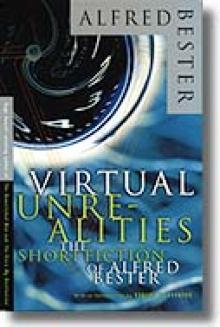 Galatea Galante
Galatea Galante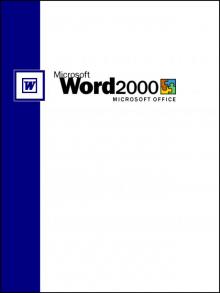 Hobson’s Choice
Hobson’s Choice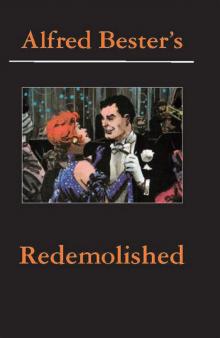 Redemolished
Redemolished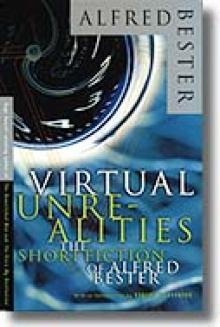 The Flowered Thundermug
The Flowered Thundermug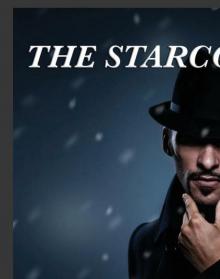 The Starcomber
The Starcomber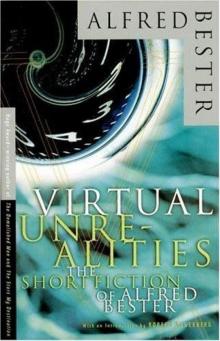 Virtual Unrealities: The Short Fiction of Alfred Bester
Virtual Unrealities: The Short Fiction of Alfred Bester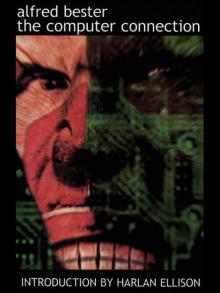 The Computer Connection
The Computer Connection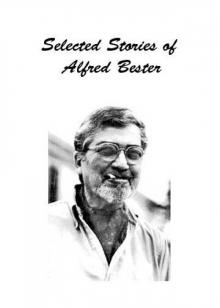 Selected Stories of Alfred Bester
Selected Stories of Alfred Bester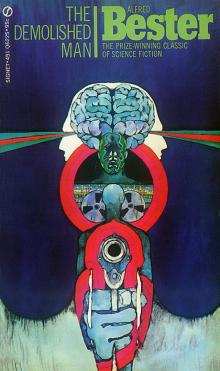 The Demolished Man
The Demolished Man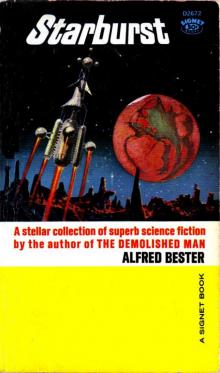 Starburst
Starburst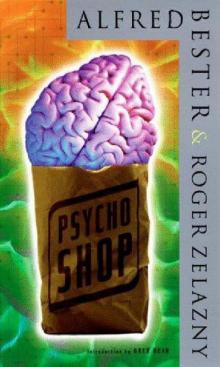 Psychoshop
Psychoshop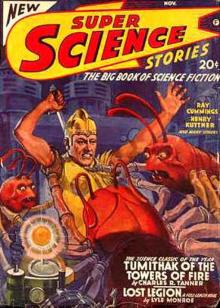 Biped Reegan
Biped Reegan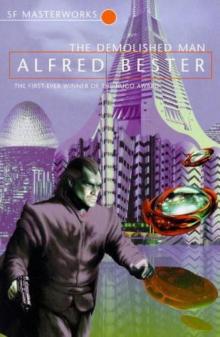 Demolished Man
Demolished Man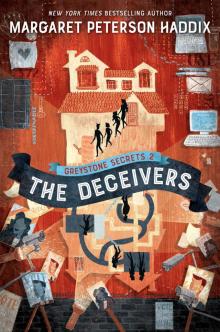 THE DECEIVERS
THE DECEIVERS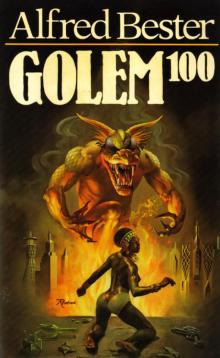 GOLEM 100
GOLEM 100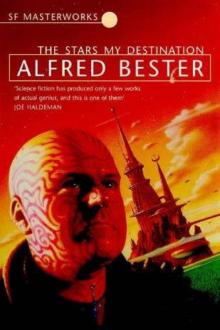 The Stars My Destination
The Stars My Destination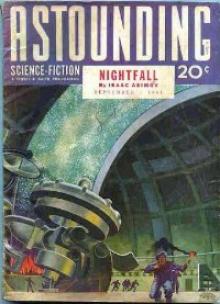 Adam And No Eve
Adam And No Eve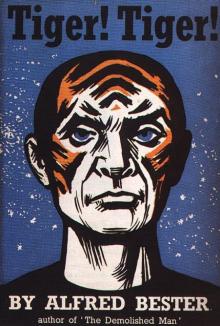 The Stars My Destination ( Tiger! Tiger! )
The Stars My Destination ( Tiger! Tiger! )